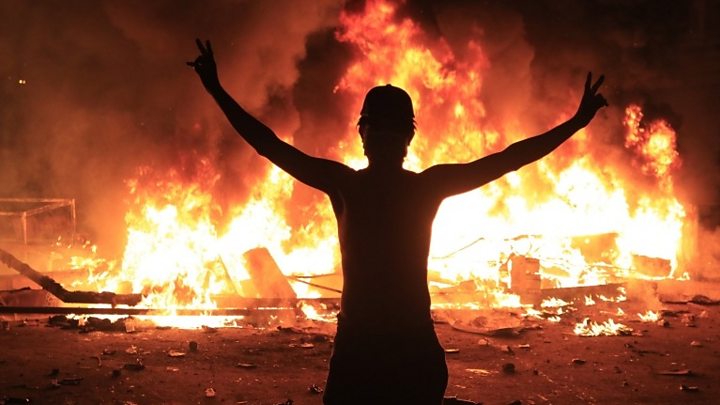
There has been an upsurge of violence in Iraq as anti-government protests enter a fifth day, amid reports of bloodshed in the holy city of Karbala.
Reports say up to 18 people were shot dead by security forces there. However, officials denied anyone was killed.
In the capital, Baghdad, thousands of protesters have defied a curfew to demand jobs, better public services and an end to corruption.
Prime Minister Adel Abdul Mahdi is under growing pressure to resign.
On Tuesday the influential Iraqi Shia cleric Moqtada Sadr said he would join forces with another powerful politician, Hadi al-Ameri, to bring Mr Abdul Mahdi down through a vote of no confidence.
- Iraq protests: What's behind the anger?
- Iraqi police used excessive force - inquiry
- Jeremy Bowen: Is a new Arab Spring unfolding in the Middle East?
- Do today's global protests have anything in common?
More than 220 people have died across the country since anti-government demonstrations broke out at the beginning of the month. A first wave of protests gave way to a brief lull, but fresh unrest began five days ago.
What happened in Karbala?
In Karbala - a major centre for Shia Islam - the situation remains unclear, but a number of medical sources and eyewitnesses, backed up by video footage, suggest at least 18 people were killed and hundreds wounded in clashes with the security forces.
Rupert Colville, the spokesman for the office of the UN High Commissioner for Human Rights, said they were trying to get more information about the situation.
"We have received particularly disturbing reports on what has been going on in Karbala... In both those reports [United Nations Assistance Mission for Iraq (Unami) and an Iraqi government committee], they recognise that excessive force has been used."
He called on local authorities in the city to ensure security forces acted with restraint and investigate the shootings.
The local governor and the police chief in Karbala have denied any protesters were killed, saying that videos circulating widely that show protesters running away from gunfire have been fabricated.
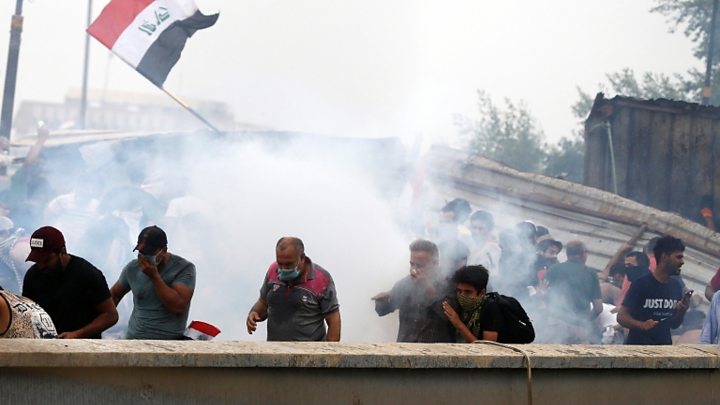
What about Baghdad?
Thousands of demonstrators vowed to continue their protests in the city, filling up the Iraqi capital's central Tahrir Square on Tuesday.
At least 74 people were killed and 3,500 others were injured over the weekend as the protests resumed in Baghdad and elsewhere following a two-week pause that organisers said was designed to give Iraq's leaders time to respond to their demands.
Mr Abdul Mahdi has promised to introduce reforms but protesters remain determined to try to sweep away his government.
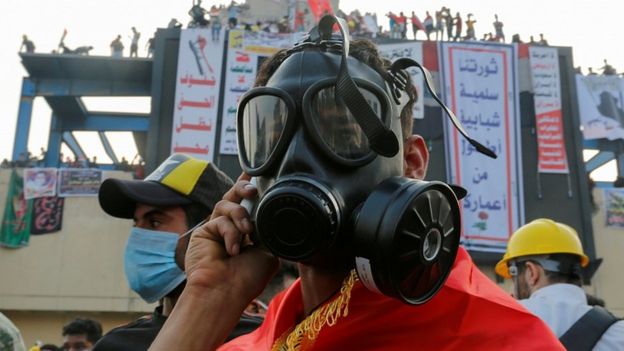 REUTERS
REUTERS
On Monday, security forces fired tear gas to deter any attempting to cross a bridge to the fortified Green Zone, which houses government offices and foreign embassies.
After the first wave of protests earlier this month, the prime minister promised to carry out a cabinet reshuffle and cut the salaries of high-ranking officials. He also said he would allocate $66m ($51m) to support the unemployed, set up training programmes for youths, and build 100,000 homes in poor areas.
Will the government survive?
The prime minister has consistently rejected demands by Moqtada Sadr, who leads parliament's largest bloc, to resign and hold snap elections.
Mr Ameri, who heads the second largest group in parliament, has previously backed the government. But on Tuesday he announced that he and Mr Sadr would "work together to achieve the people's demands".
Mr Sadr had earlier issued a public invitation to Mr Ameri to co-ordinate on a no-confidence vote in parliament.
Middle East
Lebanon PM Hariri offers resignation amid protests
- 29 October 2019
- Middle East
Is a new Arab Spring unfolding in the Middle East?
- 29 October 2019
- Middle East
Baghdadi underwear 'proved identity' for US raid
- 29 October 2019
- Middle East

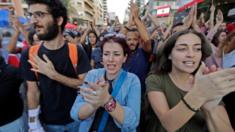
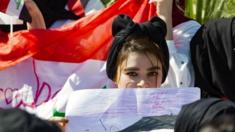
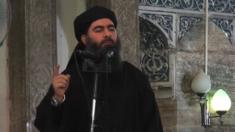


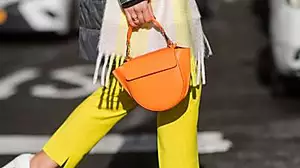
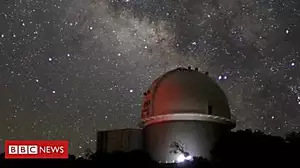
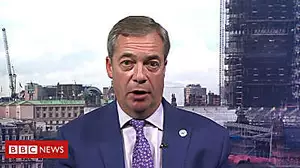
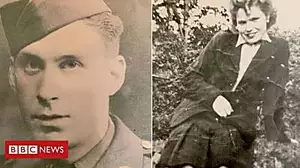

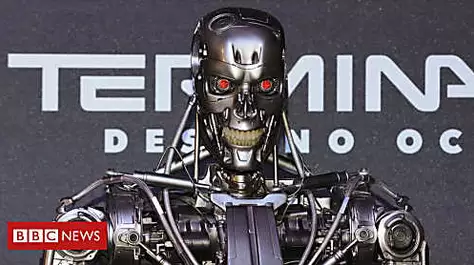
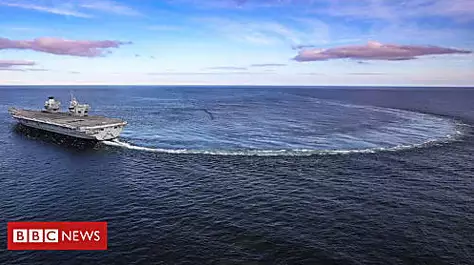

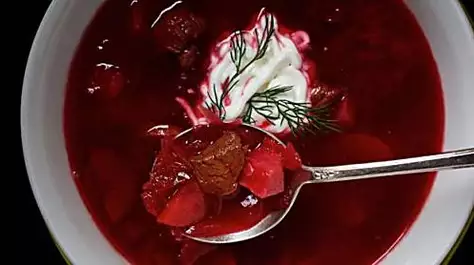
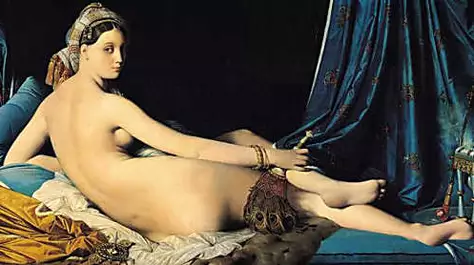
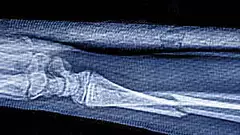
![[Gallery] Civil War Photographs Captured That Show A Different Side Of War [Gallery] Civil War Photographs Captured That Show A Different Side Of War](https://images.outbrainimg.com/transform/v3/eyJpdSI6IjFmNzZkZjBiYzQzZTQ0OWEwYjA0YmE4YzIyZjE4YWVjZGZjYTVjMjE5YWM4ZTYyNTQxNTlkOWYzMmViZDI4MmYiLCJ3IjoxNjAsImgiOjkwLCJkIjoxLjUsImNzIjowLCJmIjo0fQ.webp)
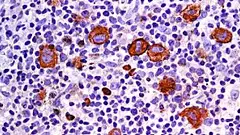

No comments:
Post a Comment